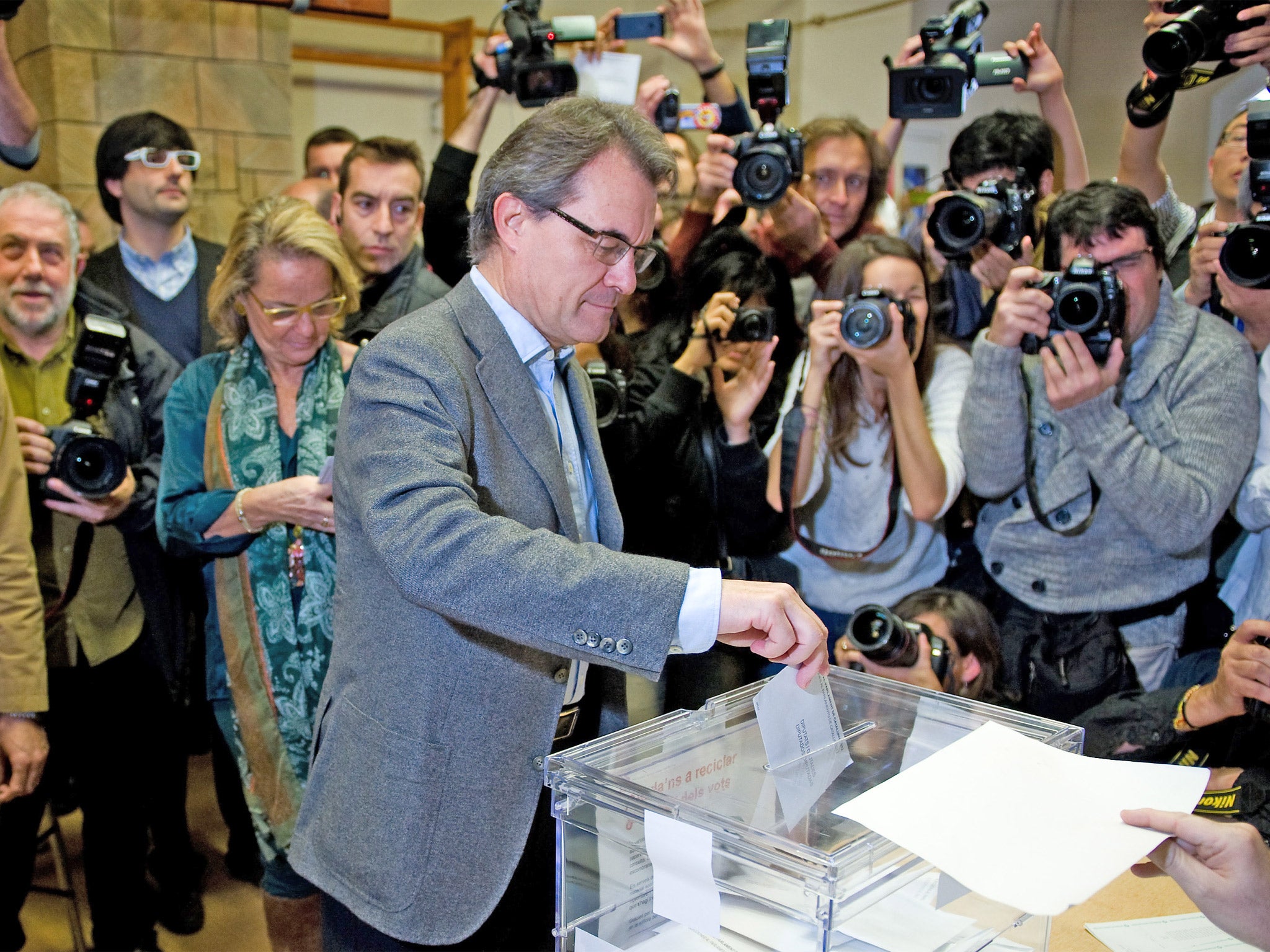Artur Mas: The safe pair of hands who became radical leader of a revolution

Your support helps us to tell the story
From reproductive rights to climate change to Big Tech, The Independent is on the ground when the story is developing. Whether it's investigating the financials of Elon Musk's pro-Trump PAC or producing our latest documentary, 'The A Word', which shines a light on the American women fighting for reproductive rights, we know how important it is to parse out the facts from the messaging.
At such a critical moment in US history, we need reporters on the ground. Your donation allows us to keep sending journalists to speak to both sides of the story.
The Independent is trusted by Americans across the entire political spectrum. And unlike many other quality news outlets, we choose not to lock Americans out of our reporting and analysis with paywalls. We believe quality journalism should be available to everyone, paid for by those who can afford it.
Your support makes all the difference.With a reputation for being a hardheaded, canny, political calculator, at first glance Artur Mas has always seemed an unlikely figure to lead Catalonia on what has - after yesterday's elections - become an increasingly uncertain path towards possible independence.
A 56-year-old former economics and law student from a well-to-do middle-class Barcelona family, up until this summer Mas was considered a safe, if somewhat uncharismatic, technocrat within the equally unspectacular, if reliable, CiU conservative Catalan nationalist party.
As a member of the Catalan parliament since 1995 following a spell in the Catalan Trade Ministry, Mas was named successor to longstanding CiU leader Jordi Pujol in 2001 and spent much of the CiU's seven years in opposition until they returned to governing Catalonia in 2010 building his power base and consolidating an image that was anything but radical.
Married, a regular churchgoer and father of three, to Madrid and Mariano Rajoy's Partido Popular (PP) party Mas and CiU seemed to represent the "safe" side of Catalan nationalism, to the point where they often allied with the PP both at national and regional level. Personally, Mas is reputedly so conservative that there are unconfirmed media reports that for the last 40 years for every summer holiday, he and his family invariably stay at the same Balearics hotel. And when they moved house, it was to another flat in the same Barcelona apartment block.
However, in Mas's recent political life there have been some drastic changes. After decades of finely calculated ambiguity on the independence issue - the word does not appear directly in their electoral campaigns - as the pro-separatist movement mushroomed, CiU and Mas opted both to bring the Catalan regional elections forward by two years and adopt an unexpectedly much harder pro-nationalist line, with Mas converted into the spearhead of the separatist bid.
If CiU's sudden conversion to outright nationalism was unexpected, the populist makeover for Mas, previously heavily criticised for masterminding one of the most intense programmes of austerity cuts in any of Spain's 17 regions and at one point so unpopular he once had to be flown into parliament by helicopter to avoid anti-cuts protesters, was even more surprising. Some analysts argued it was even a little kitschy, pointing to CiU's principal campaign poster in which Mas appeared to take the stance of an Old Testament prophet on the point of saving his people, his arms stretched aloft against a glowing backdrop of senyeras (Catalan flags).
Either way it was a risky political move, but aided by his unquestioned gifts for public speaking, Mas seems to have successfully made the switch from relative obscurity to the high-profile head of the independentista movement. Where this will now leave him following Sunday night's setback for his party and the referendum remains to be seen.
Join our commenting forum
Join thought-provoking conversations, follow other Independent readers and see their replies
Comments